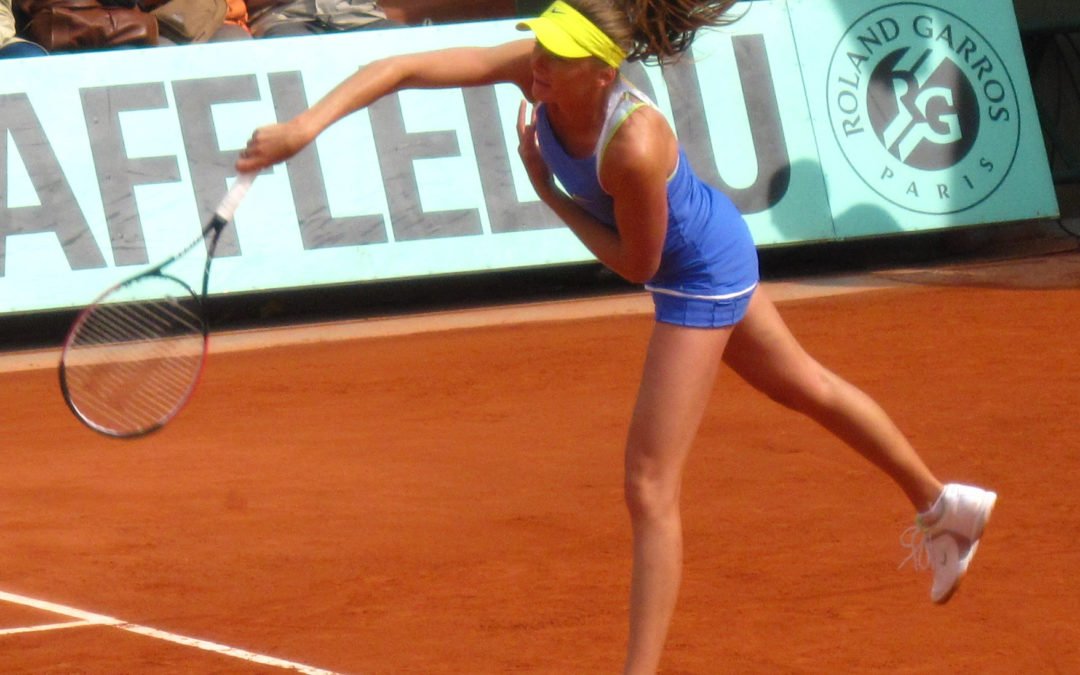 The French Open, as well as being the only of the four Grand Slam tournaments to be played on a clay court, is the most highly covered tennis event in the world. Flying dust and flashing cameras aside, players and spectators of all nationalities agree that above all it’s a great piece of competition and showmanship… not to mention multiculturalism!
The French Open, as well as being the only of the four Grand Slam tournaments to be played on a clay court, is the most highly covered tennis event in the world. Flying dust and flashing cameras aside, players and spectators of all nationalities agree that above all it’s a great piece of competition and showmanship… not to mention multiculturalism!
This year, like every year for over the last century, the French Open will confirm its reputation as one of the most highly anticipated sporting events on the planet. The tournament (known as Roland Garros in the French-speaking world, hence the logo) is taking place from 26 May to 9 June 2013.

The French Open, the rendezvous for the world’s tennis elite
The French Open officially began in 1891, but only truly took on its present colours 88 years ago, in 1925. That was the year the French Tennis Federation opened up the tournament to top-flight international players.
Ever since, the Paris’s Porte d’Auteuil has seen a long list of international tennis titans clash as they go head to head on the clay courts, sometimes with epic results. Who could forget the six hours and thirty-three minutes – the longest match in French Open history – of nail-biting action between Arnaud Clément and Fabrice Santoro in 2004?

But while the holders of that particular record may be French, the same is far from true for the other players. Countries like Spain, the United States, Australia and even Sweden have, like France, witnessed their proud countrymen brandish (or biting) the one-and-only “Coupe des Mousquetaires” trophy 10 times or more.
Players from all over the world enter the tournament, with their staff, families and supporters all in tow. And amateur tennis players of every nationality too, keen not to miss a minute of the action, descend upon the big international sporting event en masse.

All players are, of course, contractually obliged to speak at least English. But some players really get into the game by pulling out a few words of French at interviews and press conferences. One such example is World No. 1 Novak Djokovic, who has the laudable distinction of speaking 4 languages (Serbian, English, German, Italian), and has made fast progress on his French since moving to Monaco! After toppling Roger Federer in the ATP ranking, will Djokovic manage to outdo the Swiss golden, who is conversant with 5 languages (English, French, German, Swiss-German and Swedish)? It’s a daunting task, especially given the World No. 3’s propensity for talking. In fact, he has a bit of a reputation for giving long press conferences in every language he speaks…
All this linguistic and cultural diversity is just part of what gives the French Open its unique je ne sais quoi.
Ra
Translation and interpreting – key success factors in any international sporting even

The French Open relies on impeccable organisation to rally the 2,000-odd people who make the event happen. These include everyone from management staff and the honorary committee to the inspectors, umpires, medical staff, maintenance employees, security guards and ball boys (and girls) who work at the stadium.
But the event also requires a great deal of linguistic coordination. Especially since the French Open, being the only Grand Slam tournament in a non-English-speaking country, is the only one to be translated. The official tournament languages are French, English and Spanish.
And despite the best efforts of certain multilingual players, the sheer number of people from different language backgrounds only serves to highlight just how important translation is at international sporting events of this size, which are beamed live into homes around the world. That’s why good communication is the key for everyone involved. That’s where the specialised sports interpreters – tennis experts in this particular instance – get their game on by translating and interpreting the international sporting event.

Sports translation requires in-depth knowledge of each individual sport. Players often comment on their game or their adversaries’ game using a technical vocabulary that the interpreters need to master.
The famous Nelson Montfort’s interviews for example are translated into the tournament’s three languages, and the interviews are broadcasts onto screens worldwide! That’s quite simply because the French Open is one of the most heavily covered tennis – even sporting – events on the planet!
CG Traduction & Interprétation’s expertise highly sought after for one of the world’s biggest sporting events

To ensure the tournament goes off without a hitch and everyone stays in sync, the French Tennis Federation (FFT) relies on specialised teams with expertise in tennis and sports translation.
At CG Traduction & Interprétation, we have proven experience working with French and other international sports federations. Our teams of interpreters are amongst the best there are in sport.
(Photo: Eddy Berthier)
Are you looking for professional interpreters for a sporting event or other specialty event? Contact our teams of specialised translators and Interpreters


